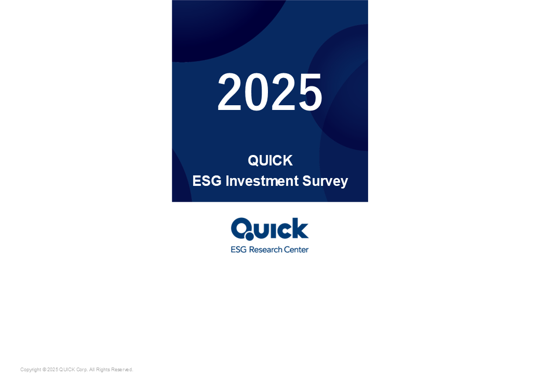Japan Markets ViewGrowing Expectations on Wage Hikes at Japanese Companies – Outlook for 2024
Feb 21, 2024

[QUICK Market Eyes] Expectations for “wage hikes” are rising due to labor shortages and price hikes at companies. In Japan’s annual wage negotiations that began in February, many labor unions made demands exceeding those of the previous year. On February 9, labor unions of Nippon Steel (5401) and other major steel and heavy industry companies submitted demands to their companies for annual wage negotiations in 2024. Nippon Steel’s labor union demanded an increase of JPY30,000 per month, the highest level since its predecessor’s demand in 1975 (JPY32,000). Toyota Motor’s (7203) labor union demanded an increase of base-pay and regular salary of JPY7,940 to JPY28,440 per month, the highest level since 1999, the year when comparisons are available. Wage hikes will be a factor influencing the attractiveness of Japanese stock investment resulting from the normalization of the Bank of Japan (BOJ) monetary policy and the end of deflation.
Growing Expectations on Wage Hikes at Japanese Companies – Outlook for 2024
In response to strong financial results, many listed companies have made positive statements about raising wages. We compiled the forecasts of 983 companies, excluding financial institutions, on the Tokyo Stock Exchange Prime Market with the fiscal year ending March 31, 2024. As a result, a 14.9% YoY increase in operating income is expected, up from a 6.6% increase at the beginning of the fiscal year.
According to the “Outlook for Wage Hikes in 2024,” released on January 31 by The Institute of Labour Administration, the “Questionnaire Survey on Wage Hikes, etc.” conducted among labor, management, and labor economy experts found that the wage hike rate for 2024 would be 3.66% (including regular salary increases). This is likely to be on par with the actual rate for 2023. Whether the trend of wage increases will spread from large companies to SMEs will also be a key point.
The BOJ’s Regional Economic Report (Sakura Report) released in January revealed that some large companies had already announced plans to raise wages this year with base-pay increases on par with or even higher than last year’s. In addition, momentum for wage hikes is building relatively earlier than last year, even outside of major cities. On the other hand, mainly SMEs reported high uncertainty regarding the scale of wage hikes, with many companies remaining cautious due to earnings constraints.
New Legal Category for “Midsize Companies” to Facilitate Access to Tax Incentives
The government also focuses on supporting wage increases for SMEs. Nikkei Online Edition, released on the evening of February 13, reports that the Ministry of Economy, Trade and Industry (METI) will create a new legal category for companies with 2,000 or fewer employees as “midsize companies” and provide them with tax incentives to promote wage increases and capital investment. For large companies, a wage increase of 7% or more from the previous year is required to deduct 25% of salary increases from corporate taxes. However, for midsize companies, an equivalent deduction can be made with a wage increase of 4% or more. This will encourage wage hikes for midsize companies, which until now have been treated in the same category as large companies.
A continuous rise is seen in service prices in the non-manufacturing sector, which is dominated by SMEs. The Services Producer Price Index (CY2015 = 100) for December 2023, released by the BOJ on January 26, rose to 110.4, up 2.4% from the same month a year earlier. Prices for accommodation services rose driven by increased opportunities to go out and expanding inbound travelers (foreign visitors to Japan). Civil engineering and architectural services also moved to pass on labor costs to prices.
In a report dated January 24, Naohiko Baba, a chief economist at Barclays Securities, stated, “The wage increase rate of Japan’s annual wage negotiations in FY2024 is also expected to be somewhat higher level (around 3.8%) than in 2023, albeit at a modest rate. The report also predicts that “even SMEs with less favorable earnings environments than large enterprises face relatively large labor shortages and will need to increase wages to secure human resources in order to survive.” Furthermore, the report noted, “The contribution of wages to service prices, which the BOJ has been focusing on, has been steadily increasing. With service prices acting as an anchor for prices as a whole, the groundwork for a virtuous cycle between wages and prices is being put in place.”
(Reported on February 14)
QUICK Licensed News on QUICK Data Factory
https://corporate.quick.co.jp/data-factory/en/product/data016/




